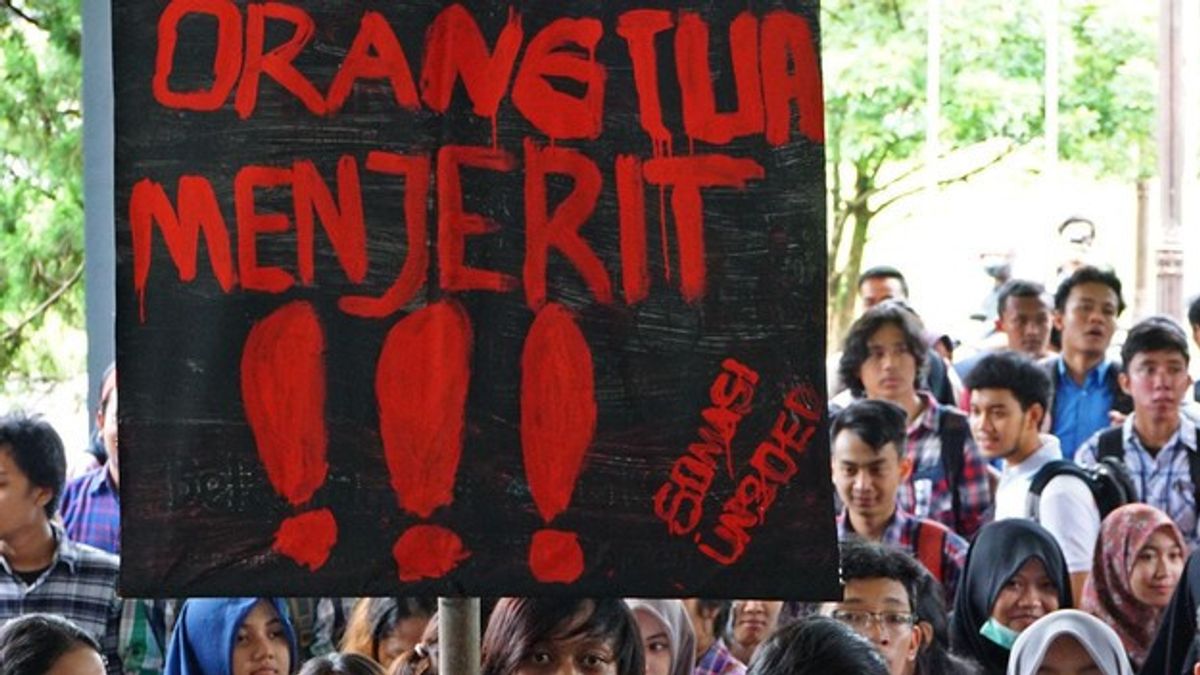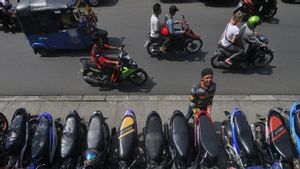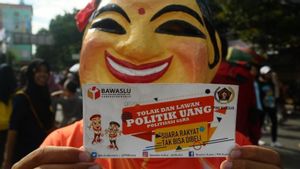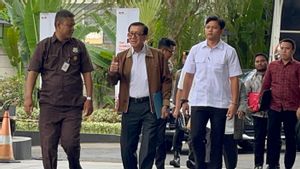JAKARTA Statements by Ministry of Education and Culture officials regarding higher education are tertiary needs that cause polemics. Education observers urge education, including higher education levels, as a public good.
The high cost of education, including single tuition fees (UKT) which experienced an increase in a number of state universities, is still in turmoil. This was exacerbated by the statement of the Secretary of the Directorate General of Higher Education, Research and Technology of the Ministry of Education and Culture, Tjitjik Sri Tjahjandariae.
"From the other side, we can see that this tertiary education is an education. So it's not mandatory to study. This means that not all SLTA, SMKs graduates are required to enter higher education. This is an option," said Tjitjiek in a video that was widely discussed on social media X.
Tjitjik's statement drew criticism from various parties, including Ubaid Matraji's education observer. He said that what Tjitjiek said that higher education was tertiary needs, contrary to the 1945 Constitution.
Shrinking the Dreams of the Nation's Children
In the past few weeks, people have been tackled with unpleasant news regarding the increase in UKT prices at a number of universities. The increase was unmitigated, some up to 500 percent, as experienced by representatives of the All-Indonesian Student Executive Board (BEM) from Jenderal Sudirman University (Unsoed) Maulana Ihsanul.
"What we are worried about is that UKT at Unsoed has soared very far away by itself, it could increase by 300 to 500 percent," said Maulana when complaining to Commission X of the DPR at the DPR Building, Senayan, Jakarta, Thursday (16/5/2024).
Maulana is not the only student who is worried about the increase in UKT. The objection was also conveyed by Riau University (Unri) student Khariq Anhar, who ended up being policed by his own chancellor, Prof. Indarti, even though the report was finally withdrawn.
Not to mention the news that caused an uproar in January 2024, when the Bandung Institute of Technology (ITB) provided a UKT payment scheme in the form of installments plus interest through Danacita's online loan platform after a number of students objected to paying for a lecture.
According to Ubaid Matraji, Tjitjik Sri Tjahjandarie's statement not only hurt people's feelings, but also discouraged the dream of the nation's children to sit in college.

"Putting higher education as a tertiary need is a big mistake. If PT is a tertiary need, then the state will give up on financing, what about the fate of primary and secondary education (which is included in the 12-year-old learning program) which is a primary necessity, has the government paid for it?" Ubaid said in a statement received by VOI.
Ubaid continued, the government's financing for the 12-year Learning Mandatory Program is only through School or BOS Operational Assistance, not full financing. As a result, the number of children who do not go to school (ATS) is mounting.
According to data from the Central Statistics Agency (BPS), ATS is still found at each level, ranging from elementary schools (0.67 percent), junior high schools (6.93 percent), and high schools/vocational schools (21.61 percent).
ATS data for universities is more pathetic. Based on BPS data in March 2023, there were only 10.15 percent of Indonesia's population aged 15 years and over who had completed their education up to college level. According to Ubaid, this happened because of the high cost of education. Especially if the government considers PT as a tertiary need.
"This means that schools in Indonesia are still paid today, and free of charge education as mandated by the 1945 Constitution (Article 31) and the Sisdiknas Law (Article 34), is still limited to omni-omon rhetoric," Ubaid continued.
Representing the Ministry of Education and Culture
Education is a matter related to the livelihoods and needs of all citizens that must be met. For this reason, calling higher education a tertiary need is wrong.
Ubaid as the National Coordinator of the Indonesian Education Monitoring Network (JPPI) demands that the government restore education, including higher education, as a public good and reject all forms of PT commercialization, especially PTNBH.
Who is responsible for meeting these needs? This mandate is clearly contained in the amalgamation of the 1945 Constitution online 4, which states that, one of the main goals of the establishment of the Republic of Indonesia is to educate the nation's life," he continued.
He continued, in order to lead to a nation that is smart and globally competitive, education to SMA/SMK is not enough. Indonesian children must be able to get education services to universities.

In addition to expanding insight and knowledge, pursuing higher education also helps improve critical thinking skills, strengthen communication skills, improve social networks, and increase career opportunities.
Tjitjik's statement also encourages language semiotic observers from ITB Acep Iwan Saidi to speak up. He considered calling college a tertiary education or an option as an inconsequential remark.
According to him, this statement is a semiotic expression of bureaucrats who do not understand the world of education at all.
"The analogy, such as book store employees, only those who know books are merchandise, grocery goods," said Acep.
SEE ALSO:
Not only that, Tjitjik is also considered to have no thoughts about how education is related to national development and human development. This expression can also be considered as a representation of the Ministry of Education and Culture in general, because now education tends to lean towards industry, instead of educating the nation.
"This is a setback to the New Order's first repelita where education is positioned as a skills investment. Our education today is education that follows the flow, not organizing let alone going against the current. inconsequential," concluded Acep.
The English, Chinese, Japanese, Arabic, and French versions are automatically generated by the AI. So there may still be inaccuracies in translating, please always see Indonesian as our main language. (system supported by DigitalSiber.id)













